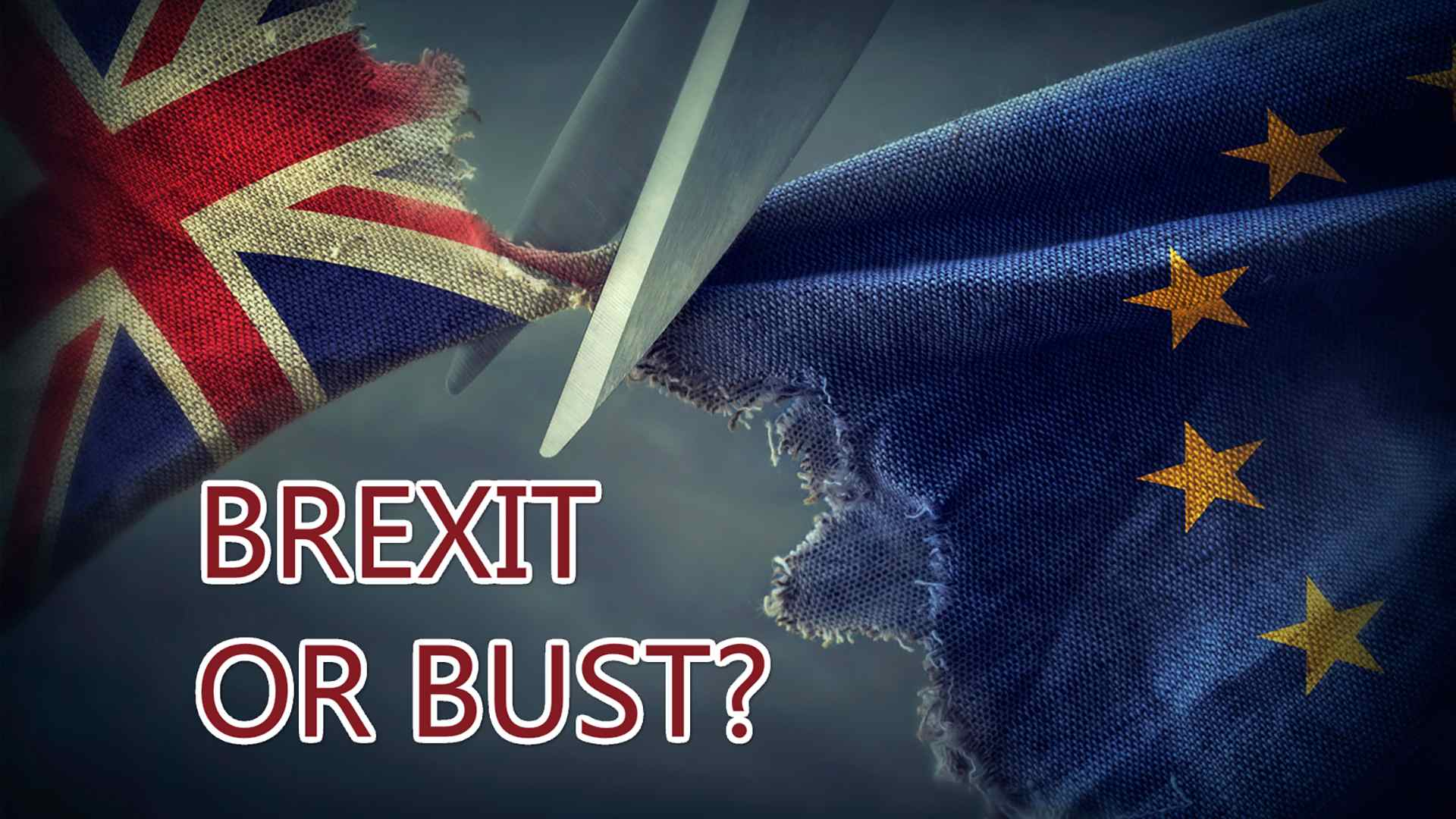
Politics
21:54, 16-Jan-2019
Brexit or bust: May's remaining options
Updated
19:49, 17-Jan-2019
By Jeff Moody, Li Jingyi
06:09

Plenty has been said about what will not happen with Brexit. Not so much has been said about what will.
What exactly are UK Prime Minister Theresa May's options now? Can she remain UK prime minister, and more importantly, can she actually deliver the Brexit Britons asked for?
The last time a UK government lost this badly, there were still horse and carts on the streets of London. This defeat is a seismic blow to May's credibility – and an almost fatal wound to Brexit.
May dusted herself down on Wednesday morning and started again, but what she faced in the next few hours was, strangely enough, not Brexit!
She has bigger fish to fry on Wednesday. She is fighting for the very survival of her government. The opposition leader, Jeremy Corbyn, wasted no time Tuesday night in wielding a political dagger and calling for a vote of no confidence in May's Conservative government.
Aggressively, he said, “I have now tabled a motion of no confidence in this government. And I am pleased, I'm pleased that motion will be debated tomorrow. So this house can give its verdict on the sheer incompetence of this government, and pass that motion of no confidence in the government."
A full-blown parliamentary debate, not on Brexit, but on whether the Conservative government can limp on in power. This is something of a red herring.
People can assume that all the Conservatives vote in favor of the government and all non-Conservatives vote against. That is a rather safe assumption, seeing as Conservative MPs will want to keep their jobs, and they certainly do not want to fight a general election with Theresa May at the helm. She was a disaster last time. The Conservatives have 317 MPs – the other eligible parties 324. People might be forgiven for thinking that the government will lose.
No. After the calamitous 2017 election, May struck what is called a "supply and demand" deal with the Democratic Unionist Party (DUP), the main right-wing political party from Northern Ireland. The DUP voted against her Brexit bill, but under the terms of this "supply and demand" agreement, they will vote in favor of the government in any no-confidence vote. And they have 10 seats, which means the Conservatives will scrape through by just three votes.
So thanks to the DUP's Arlene Foster, the government will very probably win. She let Theresa May down over Brexit – but she could come good on Wednesday. Of course, this could be wrong. In this political environment, anything could happen.
If Corbyn does win his no-confidence vote, the prime minister has two weeks to call a general election, an election that would be a disaster for her party, and catastrophic for her personally.
MPs recently voted in a law that says the prime minister has just three working days to come up with a new Brexit deal. She has already wasted Wednesday so she has until Monday morning to come up with a new plan. She was hoping she would be able to tweak the current deal, but the sheer size of Tuesday's defeat means that particular Brexit is Brextinct.
People have already heard what May says she will do next, “the government had heard what the House has said tonight. But I asked members on all sides of the House, listen to the British people, who want this issue settled.”
She is tired, she is fed up, and she has got more work to do.
As Leavers and Remainers hold vigil outside the Palace of Westminster, May will need to do what some say she should have done all along – listen to her MPs, find out what they will accept, and work with them to come up with a Brexit deal the UK parliament supports, and take that to the European Union.
There are two massive problems: listening to the opinions of 650 MPs and reaching a consensus takes time. If she goes down this path, there is no way she can meet the Brexit deadline of March 29. There is nothing to say the EU will accept a new deal, particularly when they have said they will not.
Therefore she only has four options: to delay Brexit, carry on and crash out of the Union in March; cancel it altogether, or ask the UK people again, in a highly explosive second referendum. Which way she goes is anyone's guess.
May has worked on this deal for two years, and Tuesday night, all her work went up in smoke. People cannot help but feel sorry for her.
She has suffered the worst political defeat of any British politician since 1924. Her political enemies are crowing in their droves; one caustic opponent said she is not just as dead as a dodo – she makes dodos look positively energetic.
What of her own personal position? She faced a leadership crisis at the end of last year and won; by parliamentary law, she is now safe in her job as leader of the Conservatives for another year.
Whether the Conservatives will be in power in a year's time, no one knows. In normal times, a prime minister would resign after suffering such a defeat. But May is no normal prime minister. She will probably stay, she will fight, and she might just succeed.

SITEMAP
Copyright © 2018 CGTN. Beijing ICP prepared NO.16065310-3
Copyright © 2018 CGTN. Beijing ICP prepared NO.16065310-3